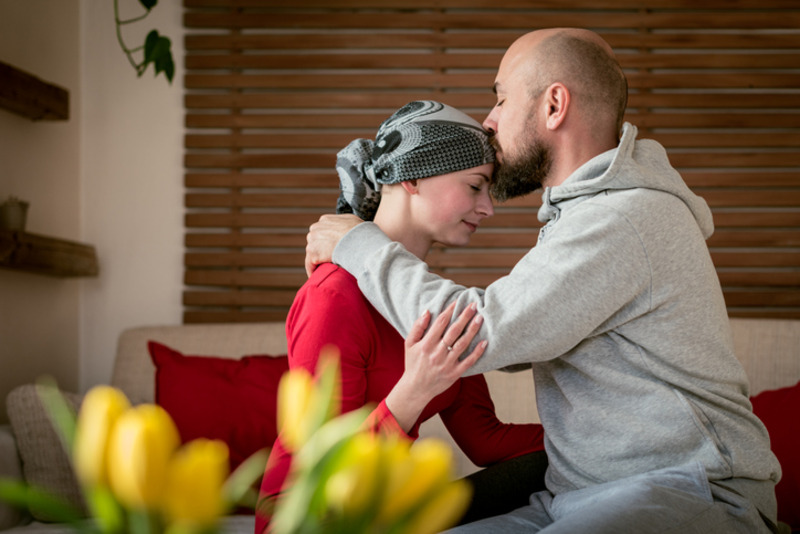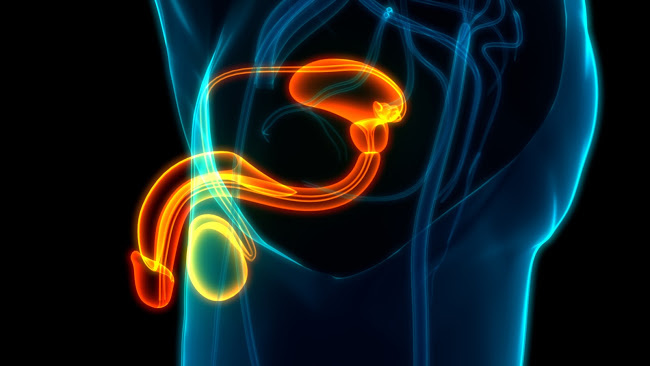
How Might Breast Cancer Impact a Person’s Sexuality?

Breast cancer can bring about changes in a woman’s sexuality, whether due to treatment or the disease itself. While some breast cancer survivors report no changes in their sexuality or sexual satisfaction, many experience problems with emotional upheaval, changes in appearance and self-perception, and/or shifts in their sexual functioning related to vaginal lubrication, sexual desire, and orgasm. The following are some of the most impactful changes that breast cancer can have on one’s sexuality.
Changes in appearance and/or self-image.
Treatments for breast cancer can result in many physical changes including the loss of one or both breasts, changes in weight, scarring, loss of hair, and changes in skin. These changes can have an effect on one’s self-esteem and sexual self-image. After breast cancer treatment, some women may feel self-conscious about their bodies during sex or even less feminine if their breasts have been surgically removed.
Although it may be a good idea to allow time to adjust to changes, women with breast cancer who are dissatisfied with their appearance might want to explore undergoing breast reconstruction surgery, meeting with a professional hairstylist to discuss wigs or scarves, or speaking with a therapist about their concerns. Of note, partners (who often assume the dual role of partner/caregiver upon a cancer diagnosis) may also require time to adjust to changes in their relationship dynamic and the appearance of their loved one.
Changes in important sensual, reproductive, and erogenous zones.
The breasts and nipples are important erogenous zones, and radiotherapy and surgical treatments can negatively affect these zones. These areas may become painful for breast cancer survivors. Even nipple-sparing surgeries do not always result in the nipples having the same function and sensation as they did previously, and for many women nipple stimulation is an important part of sexual response. Furthermore, for some women, the lost capacity of a “reproductive” sexuality can impact their sexual desire, depending on their age, whether or not they have children, etc.
Emotional distress.
Any cancer diagnosis can result in significant emotional distress, and breast cancer is no exception. Breast cancer patients must deal with the uncertainty of their diagnosis, the stress of deciding on treatment options, and the grief or sadness they may feel about the changes in their bodies and health. This emotional distress can affect one’s sexuality as well. Some individuals may feel less interested in having sex due to their depression or anxiety, and they may end up having it less frequently. Additionally, certain types of antidepressants and antianxiety medications can decrease sexual desire and affect orgasmic function and latency, which can present further challenges for these women.
Women with breast cancer who are experiencing emotional distress could consider meeting with a therapist or counselor, practicing mindfulness, and engaging in stress-reducing activities like going on walks, doing yoga, etc.
Impacts of hormone therapy.
Depending on the type of breast cancer, some women may benefit from hormone therapy that lowers the amount of estrogen in their bodies or stops the estrogen from helping the cancer grow. Decreased estrogen stores can contribute to several sexual and overall health problems such as genitourinary syndrome of menopause (GSM), vulvovaginal atrophy (VVA), painful sex, reflexive pelvic floor hypertonicity (excessive muscle tightness), and cardiovascular disease. Though local vaginal estrogen and/or testosterone treatments may help, they may not be enough. Women considering hormone therapy should talk to their health care providers about all potential risks and benefits.
Changes in sexual desire and orgasm.
Cancer treatments like chemotherapy and radiation therapy can decrease a person’s sexual desire. What’s more, cancer and its treatments can cause serious fatigue that may translate to a lack of desire for sexual activity. Orgasm intensity and latency can also be impacted. Some cancer survivors may experience difficulties reaching orgasm due to declines in desire and arousal, medications, or other treatments. Experiencing these changes while undergoing cancer treatments is normal. Nevertheless, if these declines persist and cause distress, breast cancer survivors can talk to their health care providers about ways to enhance their desire and improve their orgasms.
Changes in vaginal lubrication.
Some women may experience vaginal dryness after cancer treatments such as chemotherapy. This may be temporary, but it can still be discouraging. Vaginal dryness can lead to dyspareunia, or painful intercourse, and in some complicated cases, secondary vaginismus. To improve sexual experiences, one might consider using a personal lubricant, vaginal moisturizer, or local vaginal estrogen cream. They could also try using a vibrator to increase stimulation, or varying their sexual activities and positions to find what is most comfortable.
While any of these changes may be challenging to accept at first, talking with your health care provider about potential solutions, speaking with a therapist about coping strategies, and connecting with other cancer survivors may help. Treating breast cancer and its side effects requires a multidisciplinary approach, so do not be afraid to explore multiple avenues to meet your unique needs.
References:
- Boswell, E.N., & Dizon, D.S. (2015). Breast cancer and sexual function. Translational andrology and urology, 4(2), 160–168. DOI: https://doi.org/10.3978/j.issn.2223-4683.2014.12.04





